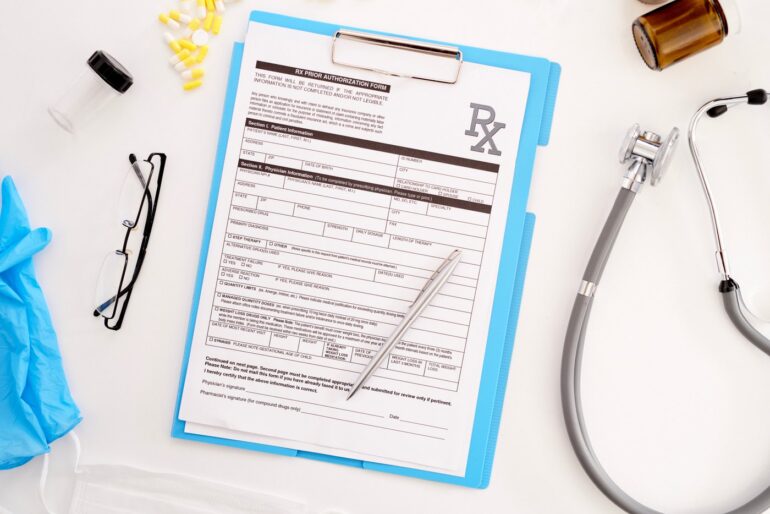When you’re wearing a paper gown, sitting in a small room with a medical professional, sometimes it’s easy to fumble and leave your doctor’s appointment with some questions unanswered and other things unsaid.
So what are the smartest ways to keep the lines of communication open — and get the health care you need and deserve?
How do you talk to your doctor?
“You should be able to communicate with your doctor almost anything. And if you really can’t, maybe it’s time for you to find another physician who matches your personality,” says Dr Sandeep Grewal, a primary care physician in at Ace Medical Group in Rock Hill, South Carolina.
Doctors are like detectives — they piece together various cues from what patients tell them to form possible diagnoses, then they examine the patient to narrow down the diagnoses and finally confirm the right diagnosis with tests if needed. That’s why what patients tell them or don’t tell them is very important, says Dr Grewal.
While the whole truth is your best bet, at the very least, here are a few things that you should never hide from a doctor.
1. Give information — don’t wait to be asked
You know important things about your symptoms and your health history. Tell your doctor what you think they need to know. Remember that it’s important to tell your doctor personal information — even if it makes you feel embarrassed or uncomfortable.
The more the doctor knows, easier her job is. Many times patients may feel something is embarrassing — or simply trivial — but it could be an important clue for the trained medical professional to be able to arrive at a diagnosis.
Not everything is easy to discuss, but your privacy is protected by some strong laws. So go ahead and ask if, for example, orgasms seem to be giving you headaches. That rash could be from a new laundry detergent, or from an insect bite.
If you’re having two or three alcoholic beverages each day but only admit to a couple drinks a week, you could get a completely incorrect diagnosis. Even the way your urine smells could signal something. You never know.
2. Reveal all of your medications
Always bring any medicines you are taking, or a list of those medicines (include when and how often you take them) and what strength. Talk about any allergies or reactions you have had to your medicines, and also tell your doctor about any herbal products you use or alternative medicines or treatments you receive. This is important to avoid problems, such as dangerous drug interactions.
Likewise, never hide a narcotics prescription you got from another doctor. Healthcare professionals are always looking to weed out “doctor shoppers” from the patients who really need pain meds — and with the advent of electronic records, they probably already know if you’re one or not.
If you’re not upfront with your narcotic prescriptions, you may be considered a doctor shopper — something that is not only illegal, but could be truly hazardous to your health.
According to a study reported in 2014, one out of every 143 US patients who received a prescription for an opioid painkiller in 2008 obtained prescriptions from multiple physicians in a pattern that suggested misuse or abuse of the drugs.
Even among the groups of patients with legitimate chronic pain complaints, substantial numbers are getting opioid prescriptions from several prescribers. This signals potentially dangerous, uncoordinated care, and these people may be at risk for medical complications or overdose.
3. Never pretend you’re complying with doctor’s orders
It is always safer to tell your caregiver if a you’re not taking a medicine or treatment as directed, because not doing so can actually hurt you. For example, if you’re not taking your blood pressure medicine (or not the full dose), but tell your physician otherwise, you’re taking risks.
For instance, your medical provider could decide that the original medication isn’t working and prescribe something else or recommend medical testing to figure out what’s going on.
Meanwhile, you’re not taking care of the problem that got you a prescription in the first place. (Some medicines can also have side-effects when they’re discontinued, or may be completely ineffective in lower doses.)
Noncompliance, as it’s called, is a big problem. According to a 2011 Consumer Reports survey, “Noncompliance with advice or treatment recommendations was the top complaint doctors had about their patients. Most of the doctors we surveyed said it affected their ability to provide optimal care: 37 percent said it did so ‘a lot.'”
If you don’t want to do something, that’s your choice — but own up to it and don’t lie to your healthcare providers.
“Physicians are trained professionals. Nothing that they hear is embarrassing,” says Dr Myo Nwe, also of Ace Medical Group. “They probably already heard everything. So be open.”








